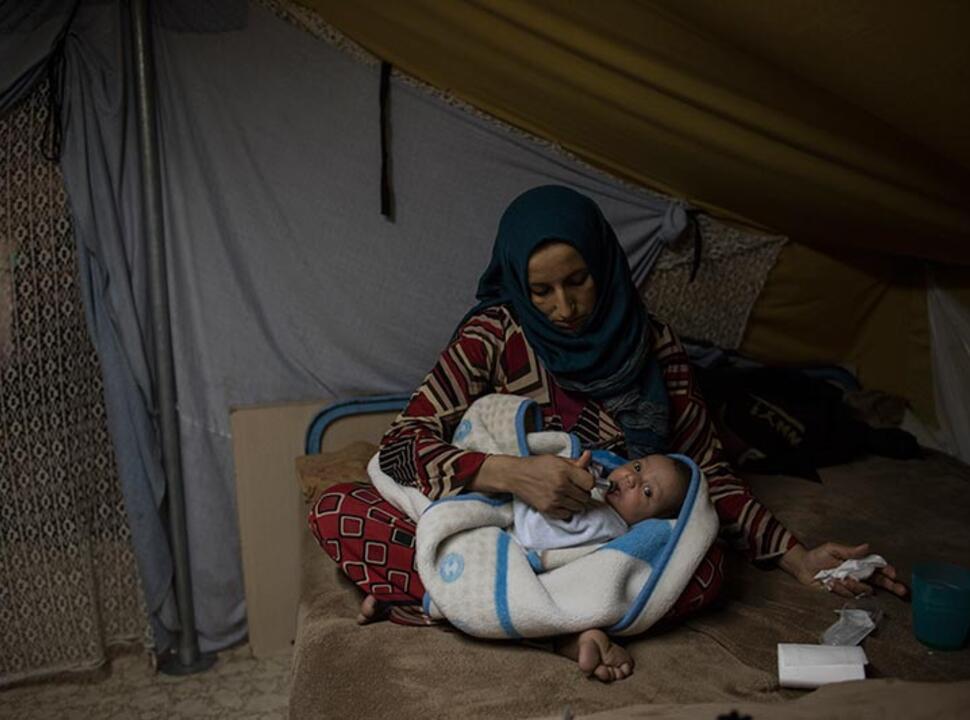Some 173,000 people poured into Greece in 2016, many of them women and girls fleeing violence and turmoil in their home countries. In November 2016, Tayma Abzali and her new baby, Helen, were living in a tent. Photo by Lynsey Addario for Time.
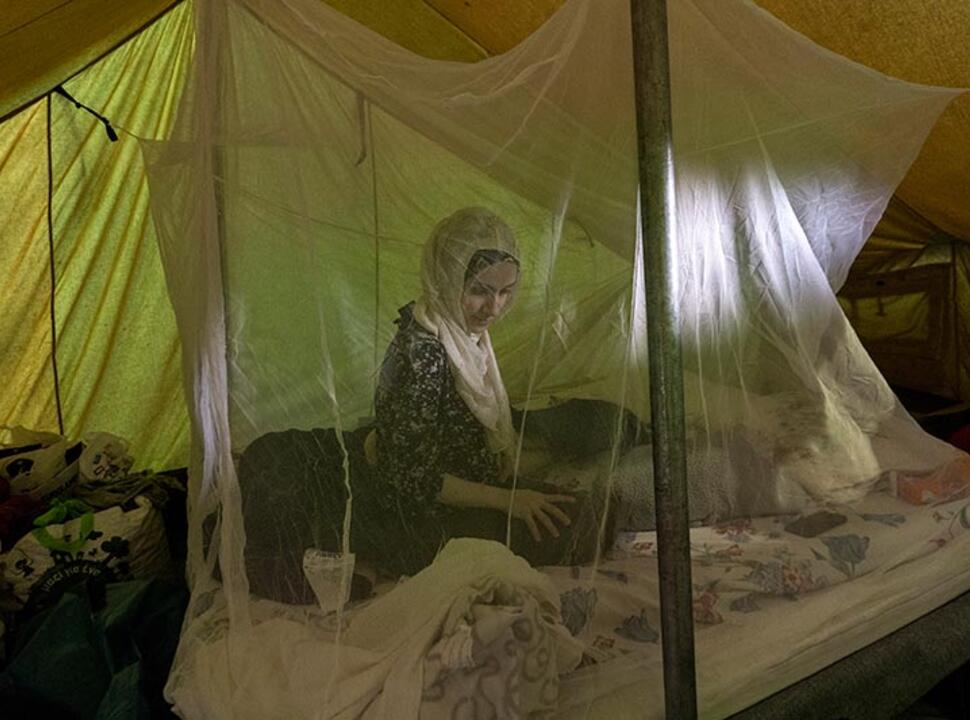
At a ceremony held on 14 December 2017, UNFPA formally handed over its work to the Government, which will carry on efforts to reach the 48,000 refugees and migrants estimated to be living in Greece today. Photo by Lynsey Addario for Time.
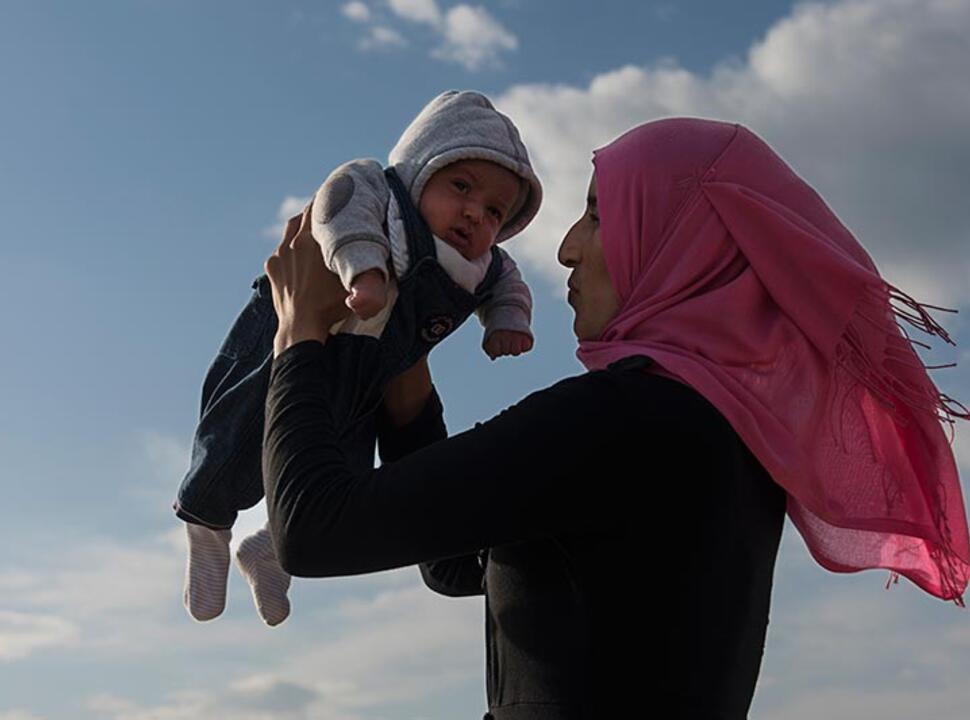
The refugees have serious reproductive health needs – including antenatal care, safe delivery services, family planning, and clinical manage of rape. Illham Saleh spent the end of her pregnancy in an old tobacco warehouse. Photo by Lynsey Addario for Time
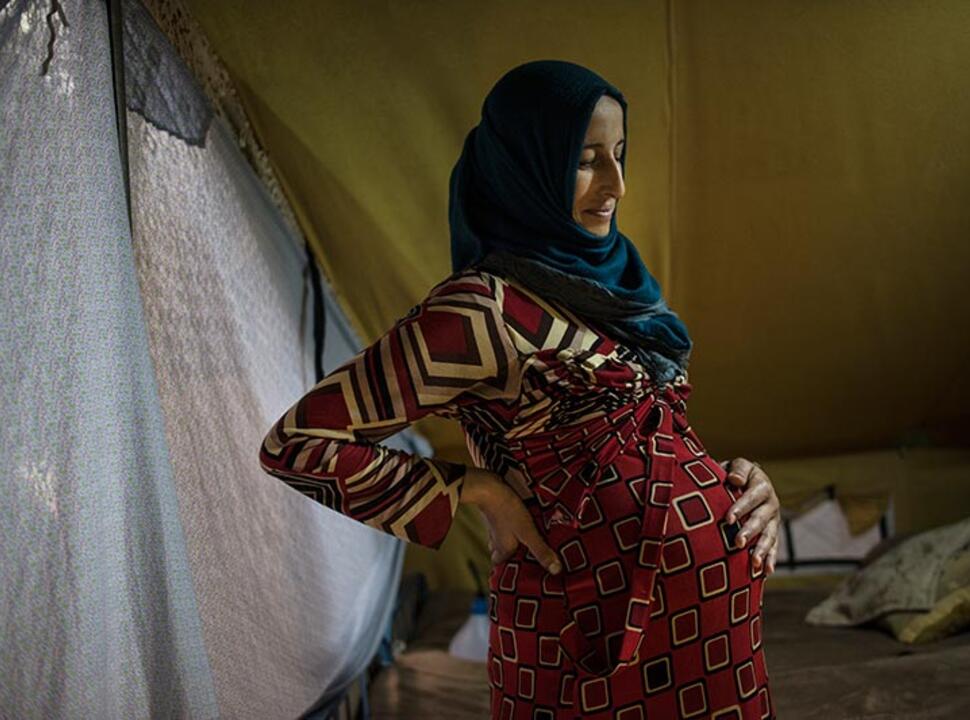
Souad Syed Iessa, 25, got no prenatal care while fleeing Syria. Once she was ready to deliver, doctors discovered she had life-threatening complications. After a tense four-hour surgery, both she and the baby survived. Photo by Lynsey Addario for Time.
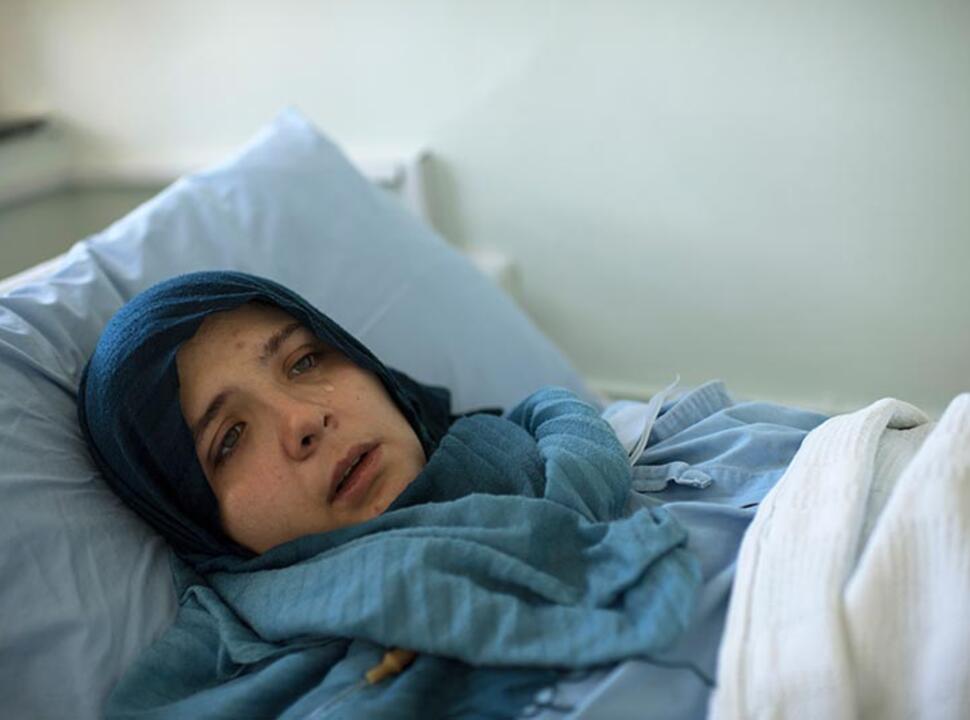
At the onset of the crisis, UNFPA deployed emergency reproductive health services, supporting mobile reproductive health clinics and outreach workers. Ms. Abzali and Helen in their tent, which had no access to hot water. Photo by Lynsey Addario for Time.
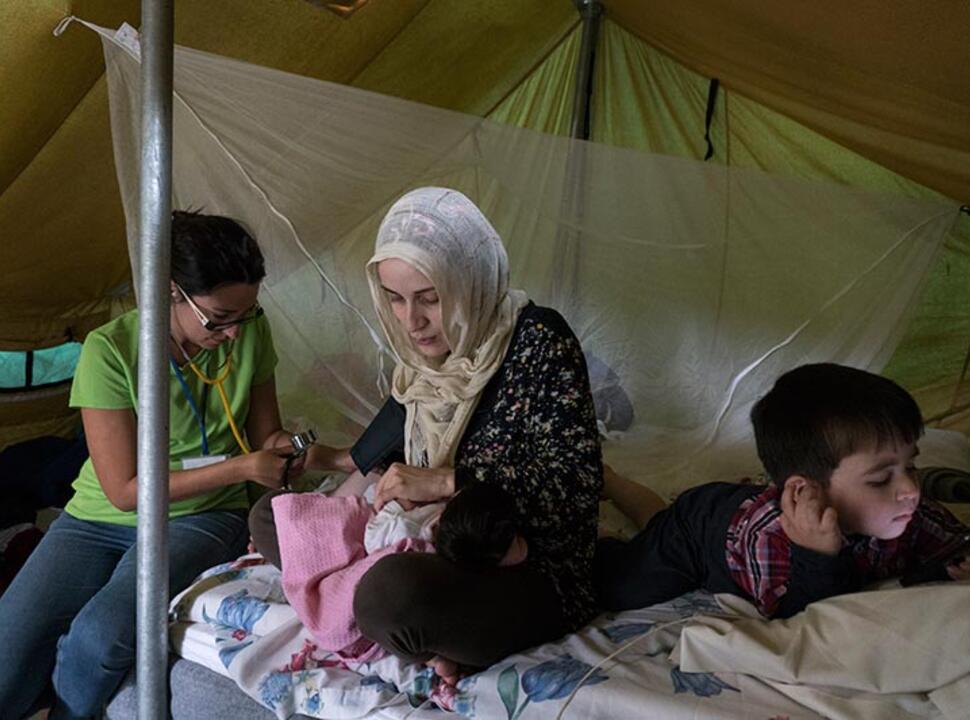
UNFPA also trained health workers and others, improving local capacity to serve these vulnerable women. Noor Alhouda Talaa was terrified to give birth in Greece, without her mother: “Here there is no one to help me.” Photo by Lynsey Addario for Time.

Since 2015, UNFPA has trained 1,350 people in Greece and 200 from the wider region, covering reproductive health, clinical care for rape, case management and related topics. Many of those trained are training others. Photo by Lynsey Addario for Time.
